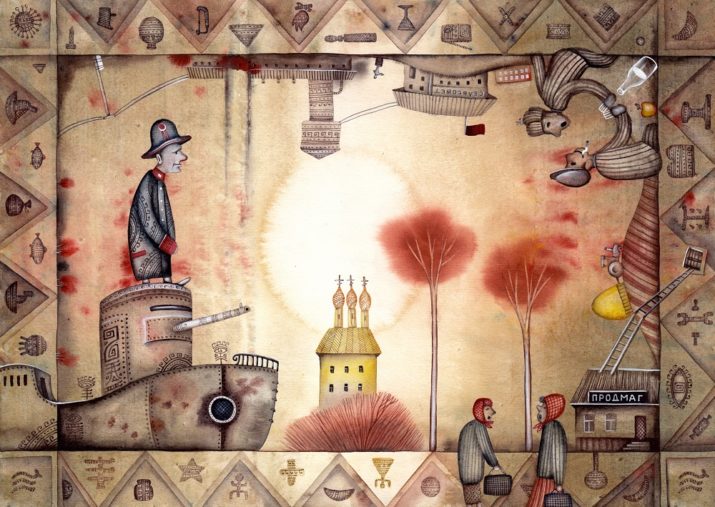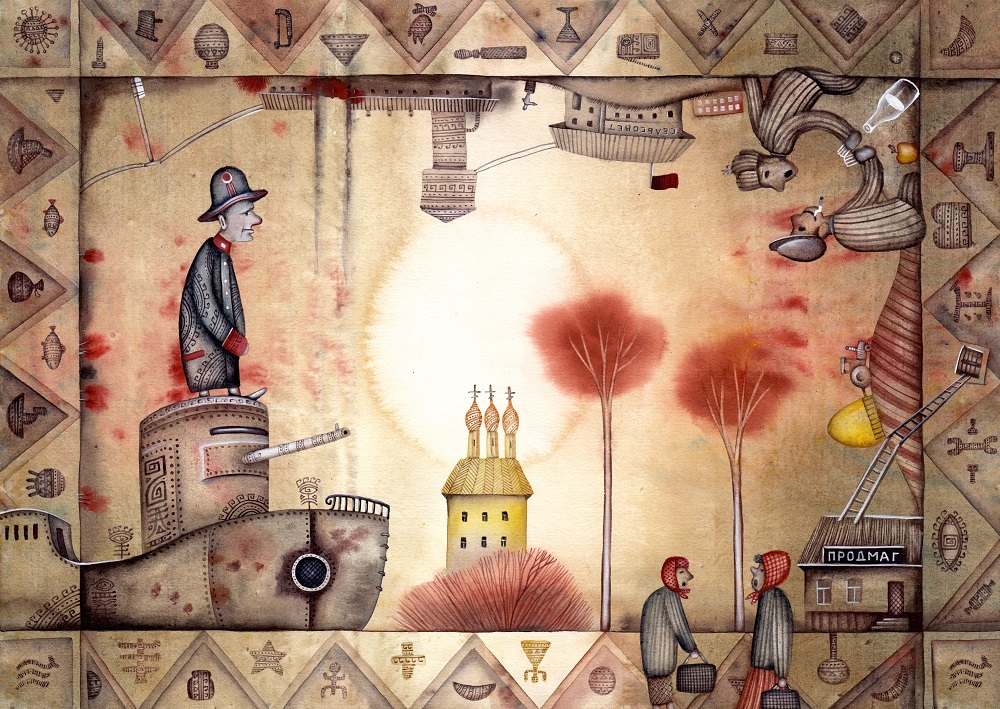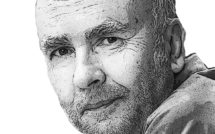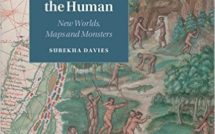

An introduction to our feature on Poets and Power: Language of Resilience from Central and Eastern Europe
“It’s a common observation that all science fiction novels say as much about the time of their composition as they do about the future,” Hari Kunzru writes in his foreword to a recent translation of the Russian 1964 novel Hard to Be a God by Arkady and Boris Strugatsky. The story is set in a future society (on an alien planet) that has not advanced beyond the Middle Ages, due to a villainous prime minister’s efforts to destroy the values of science and intellectual inquiry through the prosecution of poets, philosophers, doctors, and scientists. “As they wrote Hard to Be a God,” Kunzru continues, “the Strugatsky brothers were under considerable political pressure. Following Khrushchev’s infamous visit to an exhibition of abstract art in 1962 (“dog shit” was one of his more printable responses) a wave of panicked ideological house-cleaning swept through the Soviet Union’s artistic establishment.” For science fiction writers, as Boris Strugatsky remembers in his afterword for the novel, this resulted in a reminder that the only truly orthodox topic was “the collision of two worlds.” And so, within the Soviet Union’s own framework for acceptable literary subjects, the Strugatskys managed to write a wildly popular book about the dark fate of the intelligentsia under totalitarianism.
In Hard to Be a God, the poet’s role in the enlightenment of a society is crucial, and therefore poets are, quite literally, dragged through the mud by the ruler’s henchmen—Aleksei German’s film adaptation of the book features a particularly painful scene in which a poet is drowned in a vat of excrement after his manuscripts have been burned. W. H. Auden famously wrote “poetry makes nothing happen,” so why even bother silencing poets? Part of the answer could be found in this feature’s opening interview with the esteemed Polish poet Adam Zagajewski, in which he points out that “The struggle against Communism was not an armed struggle; it was a verbal struggle. For a long time it was the most important thing for us. We strove to create a zone of purity against this corrupt language of Communist propaganda.” Zagajewski’s conversation with interviewer Morten Høi Jensen addresses the role of the poet in the Soviet Union and draws thought-provoking parallels to the recent rise of populism in Europe and the U.S.
As Zagajewski also points out in his interview, anyone writing a history of Central and Eastern Europe would have to recognize that in each country the political circumstances were quite different—and they still are. While the Polish Zagajewski is speaking in favor of “philosophical liberalism,” this feature also includes poets of former Yugoslavia who are protesting against far-right populist movements as the dark underbelly of liberal democracy. In Selma Asotić’s chilling poem “History,” the liberal order is ushering fascism into the lives of a comfortable, unsuspecting middle class: “One drowsy morning, / as you wriggle in your / bed, wind will blow down your street, / sweeping the flags, and a hoarse voice / under your window / will burst into Lili Marlene. / Only then will you realise / it has begun.”
For writers such as Miodrag Stanisavljević, Darko Cvijetić, and Anja Marković, poetry of resistance seems to favor abstract language, revealing a post-communist experience that is perceived as surreal and in requirement of hyper-metaphorization. The result is a production of new words and phrases—such as “prettiful people” and “swift-footed peace thieves”—that come across as dislocated and out of place, separate from the normal processes of lexical production and derivation, in order to be properly expressed.
Through a showcase of nine poets in English translation, as well as research, interviews, fiction, and syllabi, this month’s special feature investigates how language, lyrics, poetics, and politics speak to and push against each other in a politically charged climate, which to many Europeans echoes eerily of a not-too-distant past.
Interviews
In Defense of Philosophical Liberalism: An Interview with Adam Zagajewski
Literature & Central Europe: An Interview with Meghan Forbes
Poetry
Two poems by Miodrag Stanisavljević, translated from the B/C/S by Mirza Purić
Two poems by Darko Cvijetic, translated from the B/C/S by Mirza Purić
Three poems by Anja Marković, translated from the B/C/S by Mirza Purić
Two poems by Selma Asotić, translated from the B/C/S by Mirza Purić
Two poems by Bojan Krivokapić, translated from the B/C/S by Mirza Purić
Two poems by Lidija Deduš, translated from the B/C/S by Mirza Purić
Two poems by Julia Fiedorczuk, translated from the Polish by Bill Johnston
Three poems by Wioletta Greg, translated from the Polish by Eliza Marciniak
Fiction
Excerpt from Wolf Hunt by Ivailo Petrov, translated from the Bulgarian by Angela Rodel
Research
“The Politics of Belonging at the Eurovision Song Contest” by Phil Jackson
“A Life Between Music and the Gulag: The Enigma of Carolina Codina” by Margaret Tejerizo
Campus
Syllabus: 20th Century Central European Literature by Meghan Forbes
Syllabus: European Avant-Garde in Print by Meghan Forbes
Katrine Øgaard Jensen is the Programs Manager of the Council for European Studies (CES) and Editor of EuropeNow.
Mirza Purić translates literature from German, Bosnian/Croatian/Serbian. He serves as an editor-at-large with Asymptote.
Photo: Allegory of the russian dictatorship, Eugene Ivanov | Flickr
Published on March 1, 2017.




